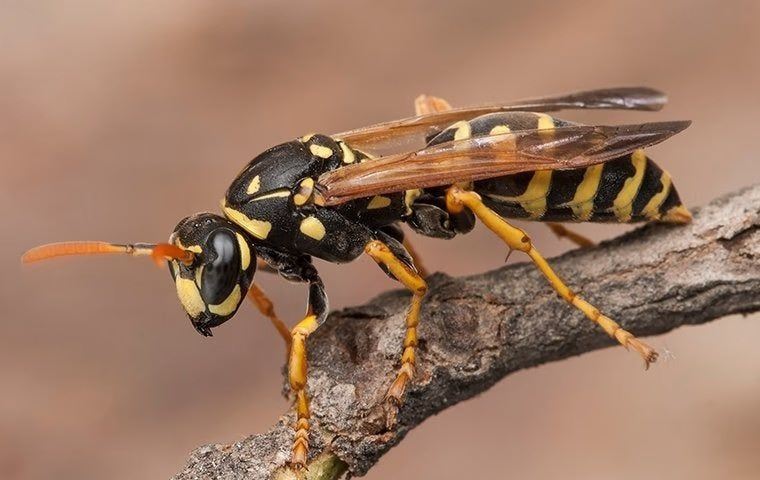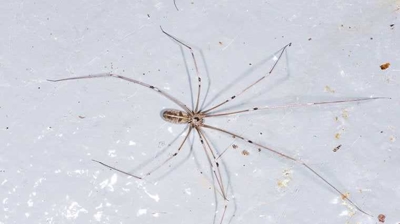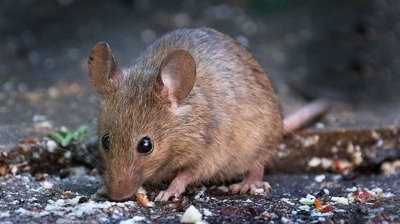
Paper Wasps Identification & Prevention
Frequently Asked Questions about Paper Wasps
Have questions? We are here to help. Still have questions or can't find the answer you need? Give us a call at 252-424-7966 today!

-
How can I prevent paper wasps in the future?
Paper wasps can be an intimidating presence on your property. Avoid problems and painful stings with the help of the following prevention tips.
- Trim tree branches away from the outside of your home.
- Keep shrubs and bushes well-trimmed to prevent their overgrowth.
- Reduce the amount of flowering vegetation planted on your property, especially next to the outside of your home.
- Maintain garden areas.
- Remove areas of standing water from your property.
- Keep wasps out of your home by placing weather stripping around windows and doors, placing caps on chimneys, sealing cracks in exterior walls, and repairing damaged screens.
-
How do I get rid of paper wasps?
The safest way to rid your property of paper wasps or other stinging insects is with the help of a professional pest control expert. At Albemarle Termite & Pest Control, our technicians are highly trained and dedicated to providing safe, effective, and affordable pest control services in Elizabeth City, NC. As a local business, we pride ourselves on putting customers first and exceeding expectations. If you want to rid your property of pests and ensure they don't return, call Albemarle Termite & Pest Control today!
-
Where will I find paper wasps?
Paper wasps are most active during the day, flying around and foraging for food. They rest during the evening and overnight hours.
Paper wasps build their nests outside in protected areas like on tree branches, dense vegetation, door frames, and under roof eaves or decks. Sometimes they will take advantage of an opening in a home’s exterior and build their nest in an attic space or chimney.
-
Why do I have a paper wasp problem?
In general, the late summer and fall seasons are when people have the most problems with paper wasps. Summer and fall are when their colony size is at its largest, and workers are out and about searching for food to feed everyone back at the nest.
Paper wasps are outdoor pests; they have the potential to build a nest in almost any outdoor space. They are especially attracted to properties where they have easy access to food (insects and pollen) and water.
-
Are paper wasps dangerous?
Paper wasps have a venom-filled stinger located at the end of the abdomen. They use their stinger to paralyze predators and to defend themselves from danger.
The venom these, and most stinging insects, possess is strong enough to cause a reaction in those who are allergic. In the case of a severe allergy or group attack, anaphylaxis may occur. Though paper wasps are not as aggressive as some other species of stinging insects, care should always be taken around them and their nesting sites.
Additionally, paper wasps may cause damage to trees and woody plants after stripping off their bark to create their nests.
-
What are paper wasps?
Paper wasps are a type of stinging insect that live together in small to medium-sized colonies—named from their upside-down, umbrella-shaped nests that look like they are made from a paper-like material. Paper wasps make their nests from a mixture of bark, other plant materials, and saliva.
Paper wasps have a pinched waist and 6 thin legs that dangle below their body when in flight. Their bodies are black or brown with yellow, reddish, or orange markings. Paper wasps are large wasps with adults growing to between ½ and ¾ of an inch in length.



